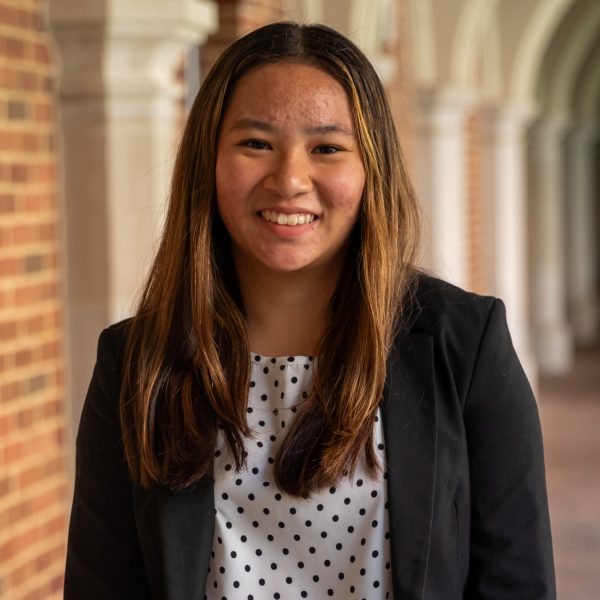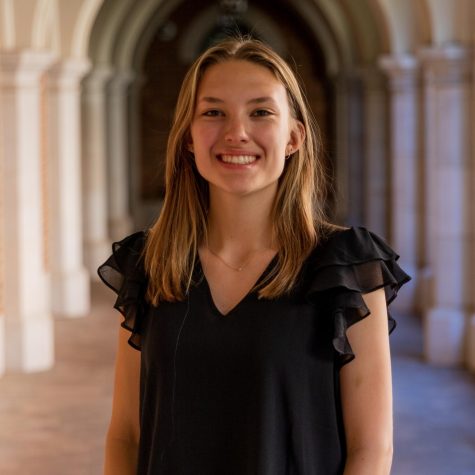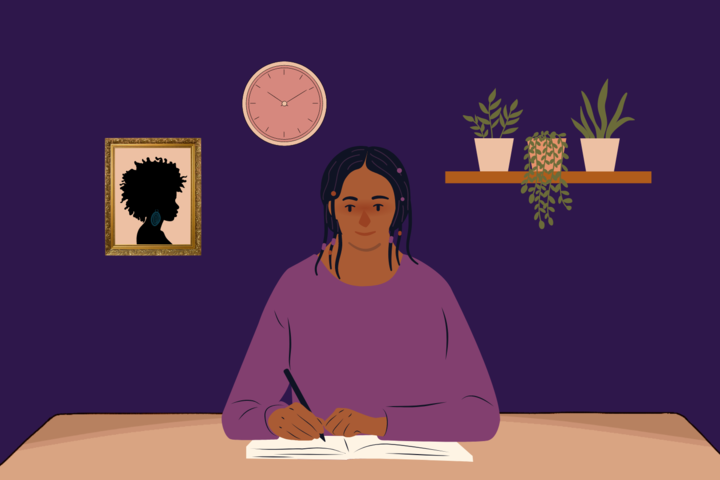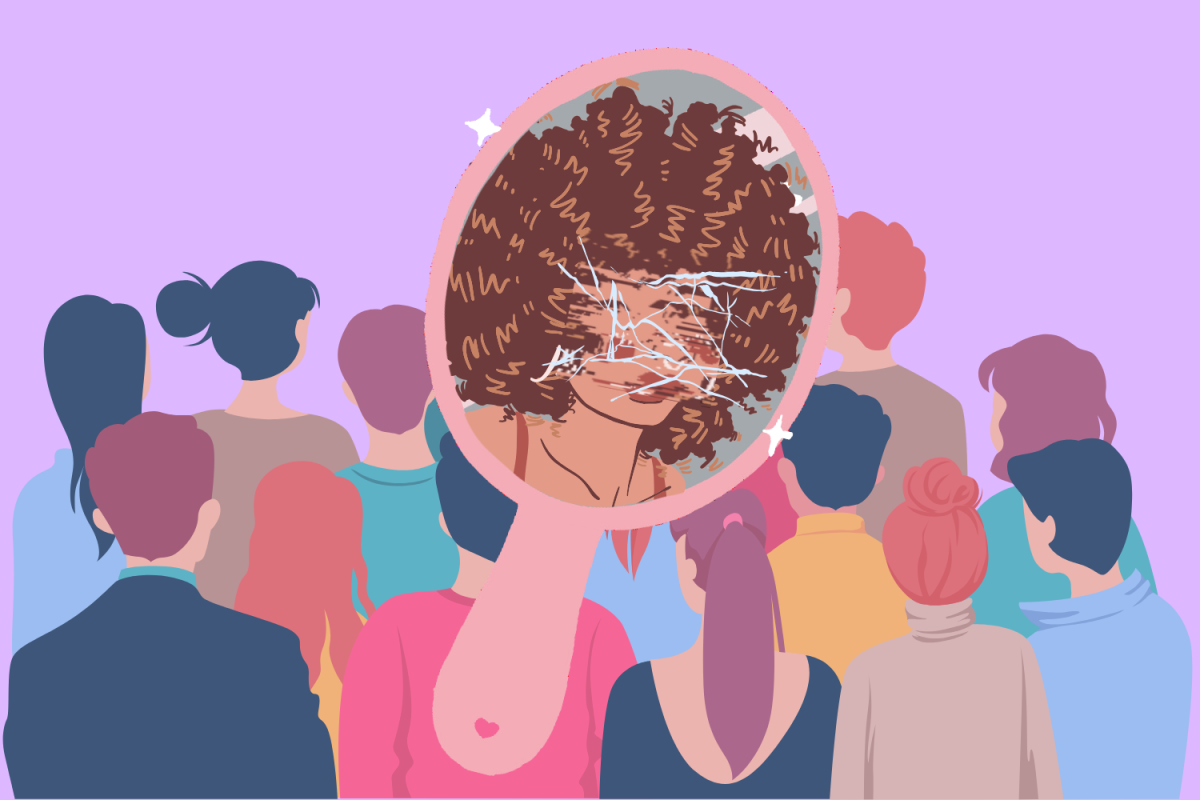‘Tis the college application season. High school seniors are hard at work, spending endless hours writing and revising essays. Eager students nationwide are researching colleges and trying to find their dream school. Vanderbilt’s bridge is crowded by a long cluster of wide-eyed prospective students and their parents on their way to Commons.
From an outside perspective, Vanderbilt is a perfect school. It’s ranked No.18 in the 2024 U.S. News & World Report’s 2024 Best National Universities list, the dining halls are ranked No. 6 on The Princeton Review’s 2024 Best Colleges list and ranked No. 1 on The Princeton Review’s list of best quality of life. Vanderbilt’s popular student vloggers also seem to have the perfect work-life balance, posting 20-minute videos documenting them taking on full course loads, working out and participating in countless clubs. This outwardly perfect lifestyle contrasted my long days of IB math, physics and English classes and even longer nights of homework, making me dream of being a Vanderbilt student.
My first year of college was far from the collegiate heaven I had imagined Vanderbilt to be, though. I felt behind and out of place since the start of my first semester. While my peers held leadership positions, conducted research and interviewed for internships, I struggled to stay afloat and not get weeded out of MATH 1300. Instead of attending concerts every weekend, I spent my Saturday nights reading about World War II. I was also processing the move from California to Tennessee away from friends and family, all while navigating constant changes of living independently and adapting to Vanderbilt’s academic rigor. Meanwhile, the students around me seemed to adapt to the Southern lifestyle immediately, having no apparent problems making friends or adapting to new customs.
I kept repeating to myself that it would get better over and over again, hoping that if I assured myself enough, I could trick myself into believing that I actually belonged here.
However, my positive affirmations did not help. After I got my grades back from the first midterms of second semester, I was crumbling inside, and my self-esteem was in shambles. I had already given myself a semester to adapt to the demands of college, but I still felt like a walking disaster — unable to do well in my classes for my major and unable to have the work-life balance that my peers did. I thought my spot at Vanderbilt was undeserved and should have gone to one of the other several thousand qualified high school students who applied. Maybe, I thought, they would have adapted to Vanderbilt by now.
As I opened up to some upperclassmen in my history course, though, I learned that this sense of inadequacy was not unique to me or even Vanderbilt students. I later learned that this phenomenon is called imposter syndrome — a psychological pattern where a person doubts their accomplishments and fears being exposed as a fraud. Turns out, it’s quite common. To get into Vanderbilt, you must stand out from a pool of highly qualified applicants. However, when we continue to have this mindset of comparison, imposter syndrome can manifest itself — especially on a campus where everyone is smart and talented.
Although Vanderbilt’s social media can make campus seem perfect, there are many students just like me who have struggled with imposter syndrome. I wish I could say that the feelings of inadequacy disappear with time, but I still feel like I am behind occasionally. I’m convinced that no Vanderbilt student has their life perfectly together. Yet, we try to portray ourselves to be as flawless as possible, even when we are stressed and confused on the inside.
I wish I could say that the feelings of inadequacy disappear with time, but I still feel like I am behind occasionally. I’m convinced that no Vanderbilt student has their life perfectly together.
Although I haven’t completely “cured” my imposter syndrome, I have learned how to give myself the kindness that I would give someone else. Through journaling, I have realized that my mental well-being is not worth the cost of stretching myself too thin to have the “perfect” Vanderbilt experience. Prioritizing taking care of myself helped minimize feelings of inadequacy. Letting go of my idealistic college life and pouring my full attention to rest and pursuing my extracurricular passions helped me find belonging at Vanderbilt.
Everyone has different goals, so it’s unrealistic to compare ourselves to others. Being involved on campus is important, but this involvement will look different for everyone. Vanderbilt is a place with hundreds of clubs and endless campus engagement opportunities, but we should not — and cannot — do everything. It is better to choose a few things that you are passionate about then trying to fit in many things you are not.
Vanderbilt has a culture centered on achievement — as evident by the school’s focus on rankings and selective admissions — which inevitably fosters a culture of comparison and competition. We are made to believe that we should have a laser focus on our academic achievement, job prospects and campus involvement, regardless of how much that mindset contributes to self comparison and imposter syndrome. Vanderbilt can help students prioritize their well-being by better advertising the many resources available at the Undergraduate Counseling Center and through the Student Care Coordination network. Our leaders can take the focus off college rankings and instead help shift campus culture to be more open to deeper, honest conversations about the realities of college life.
If your college experience does not look like a “productive day in the life” vlog, it’s perfectly normal. Your experience at Vanderbilt will get better with time, and you will find your place of belonging and purpose — you just have to allow yourself to.










